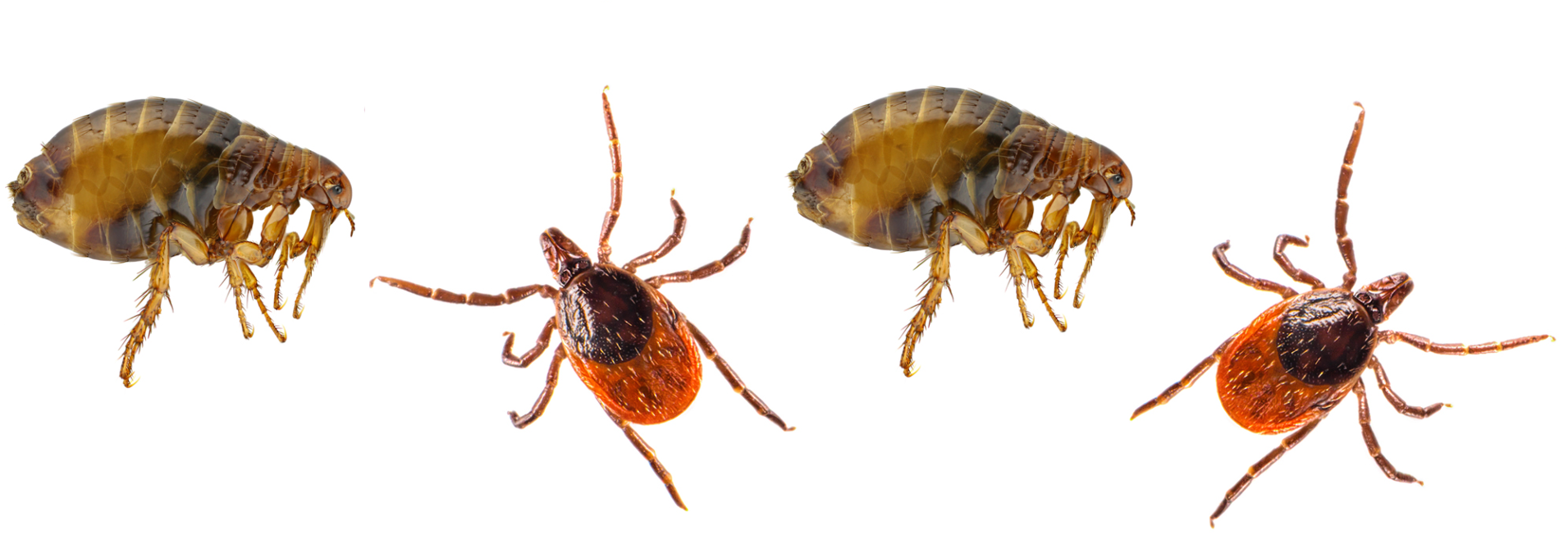
As we head into the summer, our veterinary advice team provides information on parasites and top tips on dealing with them.
The most common parasites in the UK are fleas and ticks, as with all these things, prevention is better than cure. Ensure you use a veterinary recommended flea and tick treatment for your pet.
Fleas can cause a sore and itchy skin condition and can cause an infestation in your house – flea bites can be quite nasty for people too. Fleas are tiny dark brown flightless insects that can jump very high and very quickly which is why they are not always noticed on your pet. If you suspect your pet may have fleas, you may see tiny black dots in their fur that look like grit or soil. Taking a piece of damp cotton wool over this area will help you diagnose fleas on your pets. If the soil particles turn brown or red on the damp cotton wool, then that is flea dirt. The presence of flea dirt will nearly always mean your pet has or has had fleas.
Ticks in the UK are known to spread Lyme Disease, Ehrlichiosis and Babesiosis so ensuring your pets parasites protection is up to date is vital. If you are unsure which anti-parasitic treatment is best for your pet then speak to your vet or call your veterinary advice line. Many pet insurers provide this as part of the policy. Ticks are from the same group as spiders. They have tiny heads that bury under your pet’s skin leaving the grey/brown body part sticking out. They can be itchy for the pet but not always, so it’s a good idea to thoroughly check your pets coat after being out. If you find a tick then the best way to remove it is using a tick hook or tick remover which is available online or from all pet shops. You must ensure you remove the head as well as the body. If you are in any doubt then contact your vet or veterinary advice line so they can talk you through the process.
Worming – worm infestations can begin from birth so it is important to carry on an effective deworming protocol throughout your pets life. At least once a month for puppies and kittens and three monthly for adults. The exact protocol will depend on the product used to speak to your vet or veterinary advice line for more information. There are different types of worms, some of which can spread to humans and are potentially quite dangerous for children, so ensuring your pet is given an effective wormer regularly is important for all members of the family.

